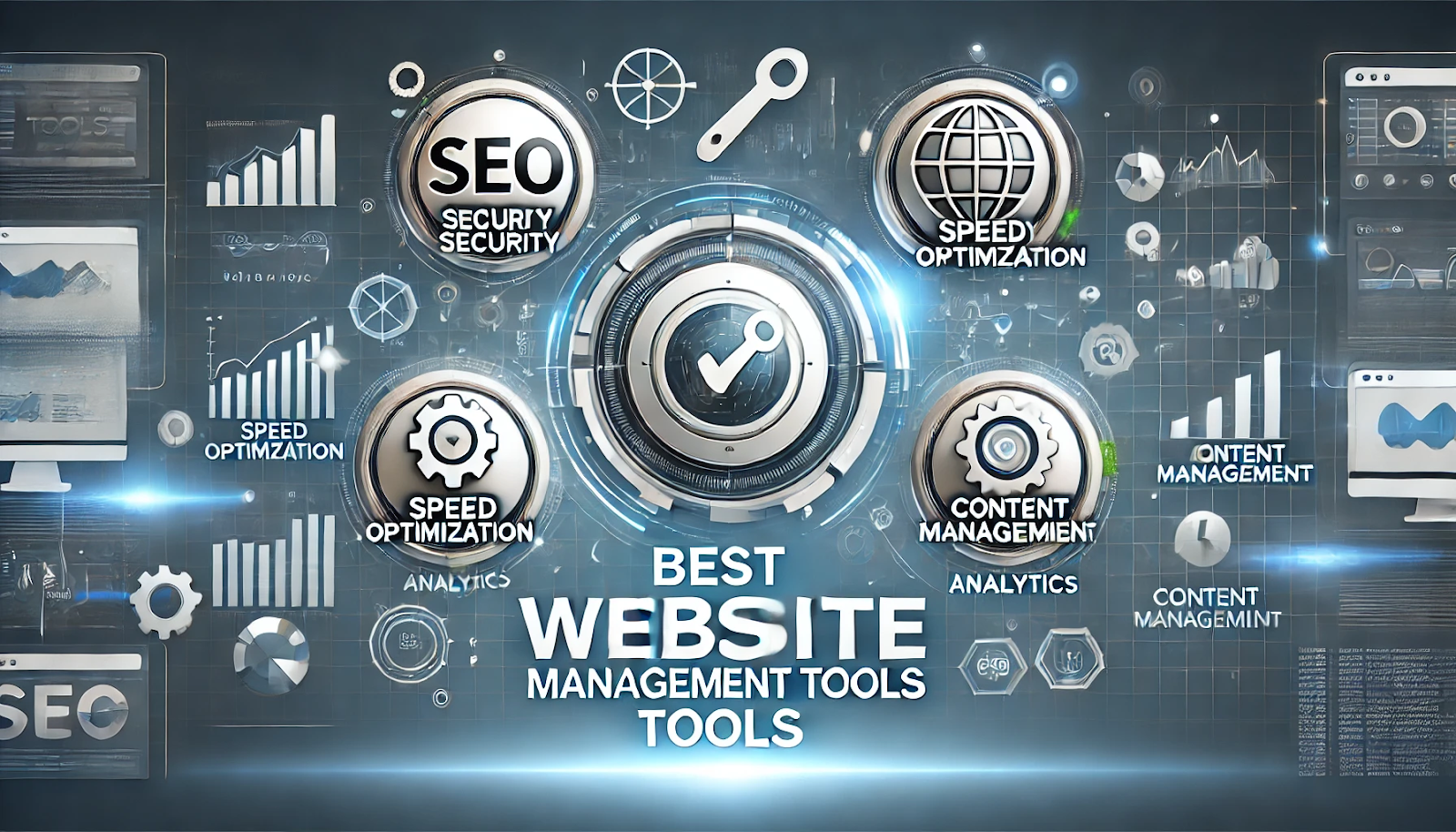Best Website Management Tools Every Beginner Needs
12 March 2025

Managing websites becomes complex primarily for people who are starting in this field. Website maintenance depends on various performance and security elements, which together create a well-maintained website. Numerous website management tools make these operations easier for beginners to handle their site development and expansion.
The following guide presents the top selection of best website management tools as well as security features together with SEO optimizations and performance enhancements with maintenance capabilities.
1. Website Builders and CMS Platforms
A Best content management system (CMS) or website builder makes website creation and management easier and faster. Here are some beginner-friendly options:
- WordPress - One of the most popular CMS platforms, offering flexibility and customization for all types of websites.
- Wix - A drag-and-drop website builder, perfect for beginners who want an easy setup.
- Shopify - A powerful e-commerce platform designed for online stores.
Why You Need It:
Content management systems help us to build and manage content without logical and coding knowledge like wordpress. In this, there are widely used platforms due to its extensive plugin ecosystem.
2. Website Hosting and Domain Management
Website stays online and quick loading time with reliable hosting. Here are some trusted hosting providers, look into it.
- Bluehost - A beginner-friendly hosting provider with one-click WordPress installation.
- SiteGround - Offers great speed, security, and customer support.
- Namecheap - A budget-friendly hosting and domain registrar.
Why You Need It:
Good hosting improves website speed, security, and uptime.reliable provider helps for smoother website performance.
3. Security and Backup Tools
The existence of cybersecurity threats presents real dangers to every website because they face the possibility of hacking attacks and malware and data breaches. The following essential protective tools should be considered:
- Sucuri - Offers website security, firewall protection, and malware scanning.
- Wordfence - A great security plugin for WordPress that protects against cyber threats.
- UpdraftPlus - Automates backups and allows easy restoration in case of data loss.
Why You Need It:
The protection of your website from hackers depends on security tools and the backup solutions enable data recovery during a failure.
4. SEO Optimization Tools
The implementation of Search Engine Optimization (SEO) strategies leads to better positioning of your website both on Google and other search engine platforms. Here are essential SEO tools:
- Yoast SEO - A WordPress plugin that optimizes your content and improves search visibility.
- Google Search Console - Provides insights on how Google sees your site, helping with indexing and troubleshooting errors.
- SEMrush - A powerful SEO tool for keyword research, competitor analysis, and backlink tracking.
Why You Need It:
SEO tools help increase your website’s visibility, drive organic traffic, and improve search rankings.
5. Performance and Speed Optimization Tools
A website that loads too slowly results in visitors abandoning the site more frequently and reduces the chances of them making a purchase. Interactive tools exist that help enhance website performance.
- Google PageSpeed Insights - Analyzes your website speed and offers suggestions for improvement.
- WP Rocket - A caching plugin that enhances website speed and performance.
- Cloudflare - Provides a free CDN (Content Delivery Network) to boost site speed and security.
Why You Need It:
A quick website enhances both user satisfaction together with higher search engine positions. The site speed improves by running optimization tools across different devices.
6. Analytics and Monitoring Tools
The evaluation of your website performance remains crucial for attaining business growth. These tools enable you to gain understanding about how users behave:
- Google Analytics - Tracks visitor behavior, traffic sources, and user interactions.
- Hotjar - Provides heatmaps and session recordings to understand user experience.
- UptimeRobot - Monitors website uptime and sends alerts in case of downtime.
Why You Need It:
Analytics tools help you measure traffic, user engagement, and site performance to make data-driven improvements.
7. Website Maintenance and Management Tools
Most website maintenance work guarantees operational efficiency while preventing system failures. Here are some must-have tools:
Key Features:
- ManageWP - Allows users to manage multiple WordPress sites from a single dashboard.
- Broken Link Checker - Detects and fixes broken links that can harm SEO.
- Canva - A simple graphic design tool for creating website images and visuals.
Why You Need It:
Regular maintenance prevents technical errors, improves user experience, and keeps your website running efficiently.
Conclusion
The use of suitable website management tools enables users to simplify their tasks including website security and search engine optimization and performance evaluation alongside site upkeep responsibilities. You can manage your website efficiently by using these tools no matter which platform you decide to build (blogs, e-commerce or business sites).
Are you using any of these tools? Share your experience! I would like to share mine. I am using Toolsutils for website management and development tools. Recommend you to use this website as it is very accurate and this is a simple and easy to understand website.